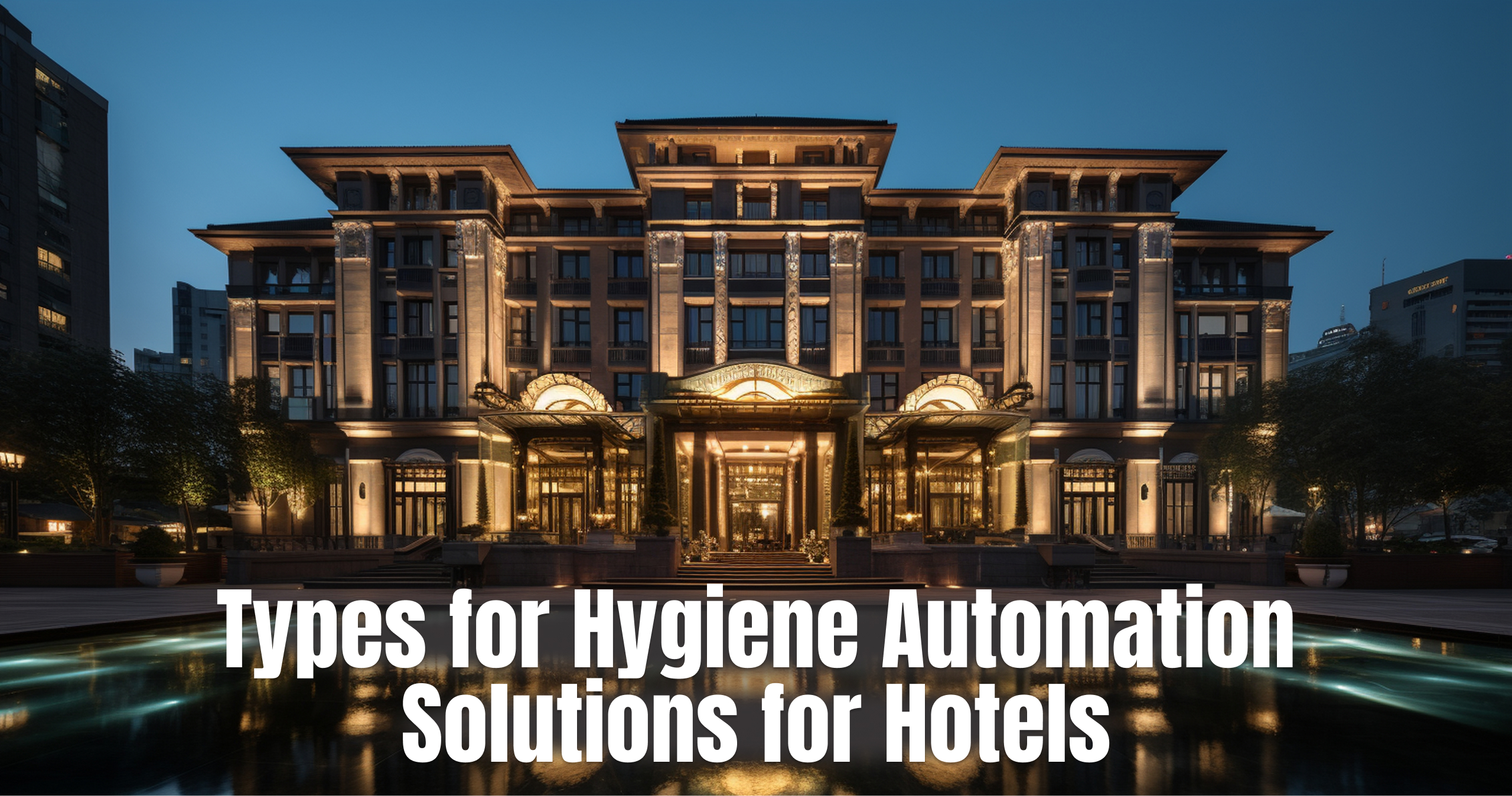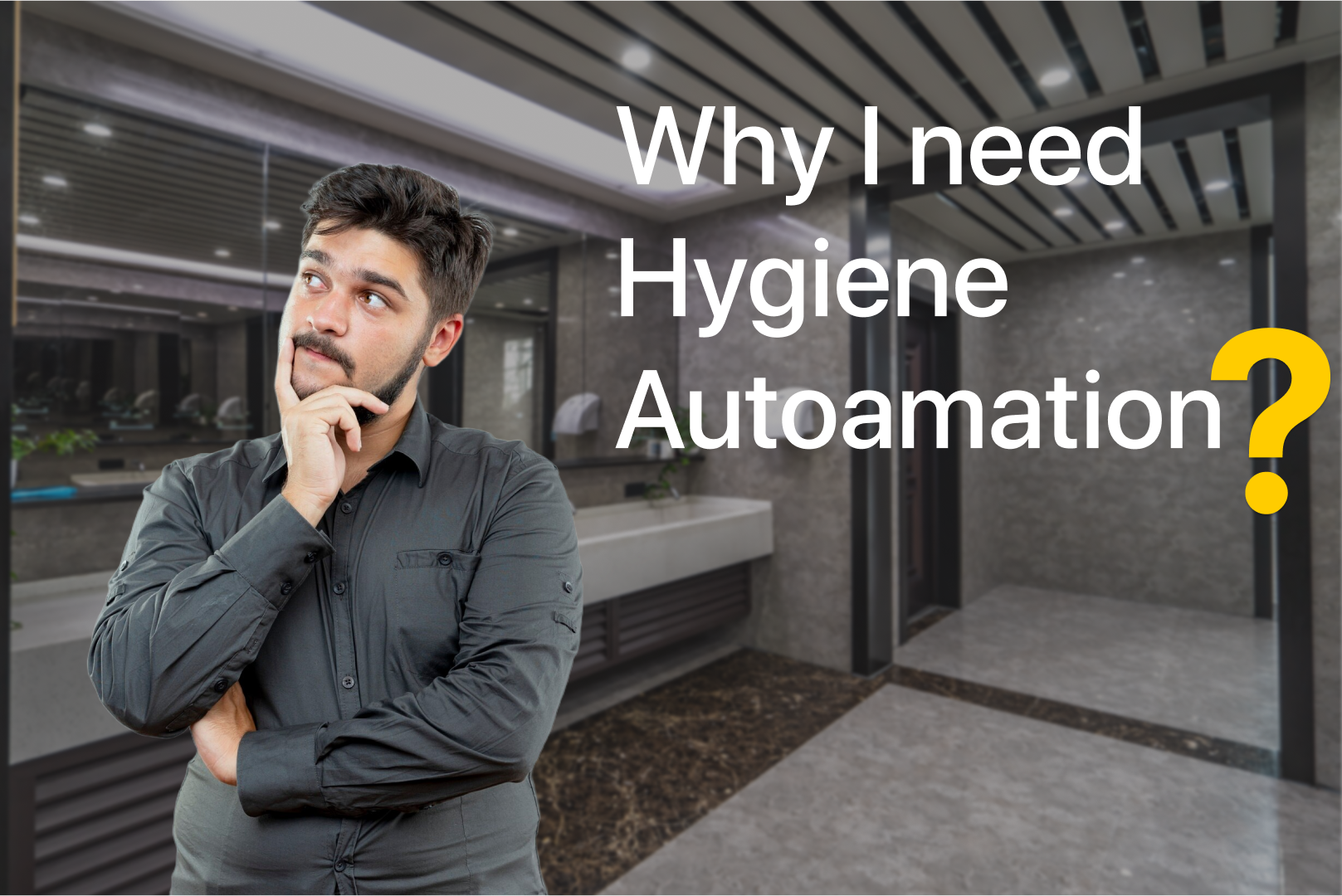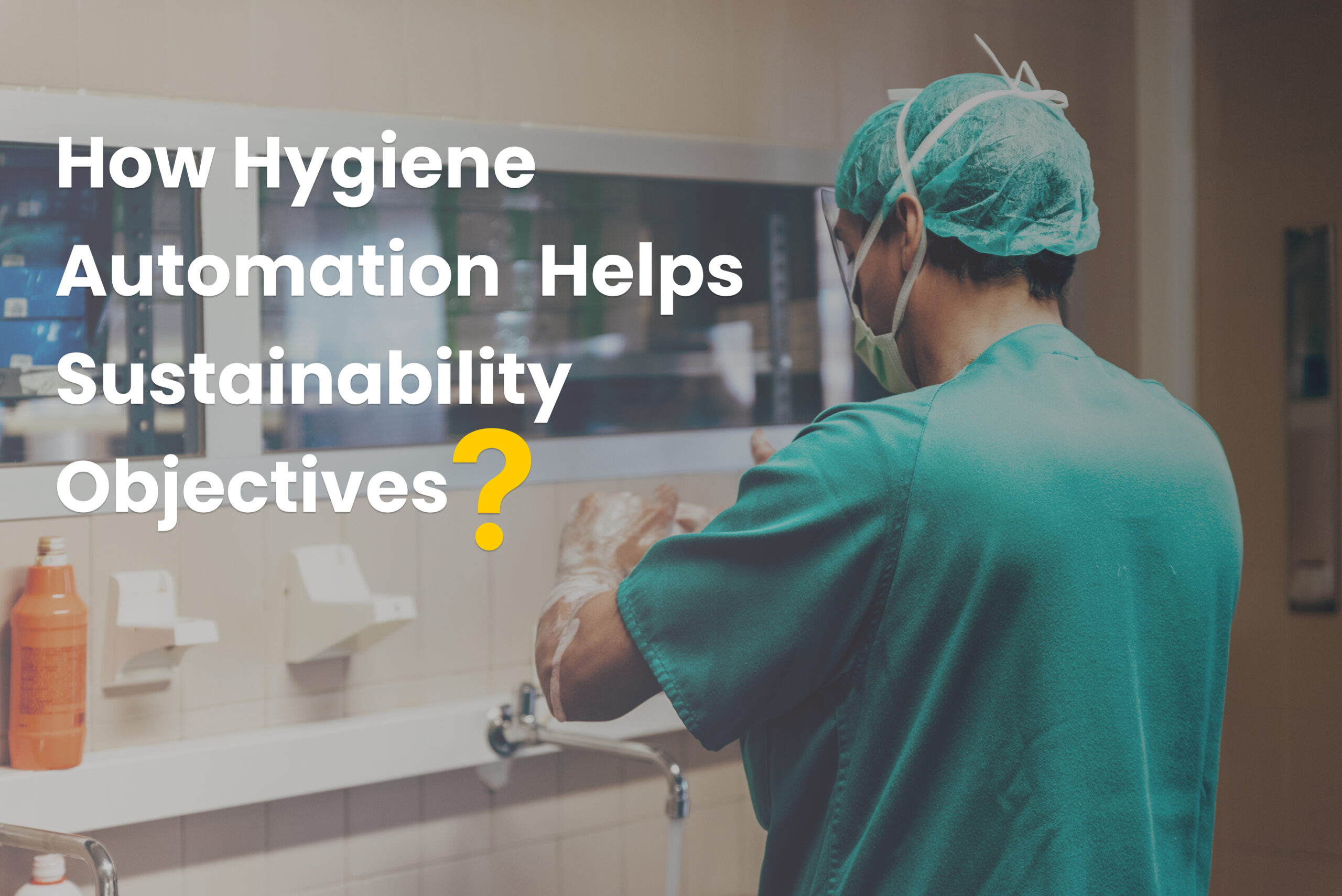Cleaning hotels has become more paramount than ever in the times we live in. Hotels: With the business of hotels, there are many people who stay in hotels and travel a lot, so there are advanced systems in hygiene and sanitation they have to ensure that everything is hygienic at every corner of the hotel. And this is where hygiene automation makes its entrance. Hygiene automation is about automatically cleaning and sanitizing a space with intelligent technology so you do not need to put in any manual effort.
Hotel automation solutions make the cleaning process quicker and more efficient and reliable as well. Imagine stepping into a hotel lobby that is sparkling clean and not harboring a single germ—all thanks to ingenious, automated systems. In this blog, let us read about some automated hygiene solution systems that hotels are implementing to improve cleanliness and guest safety. This article aims to shed light on how hygiene automation is revolutionizing the hospitality sector, whether you are a hotelier/facility manager or simply someone curious about new cleaning technology.
Different Hygiene Automation Solutions for Hotels
Touchless Dispensers
Touchless dispensers are an easy yet effective solution for automated hygiene in hotels. These no-touch devices work with no physical contact, soap and sanitizer dispensers, and paper towel dispensers.
- How They Work: When a guest or staff member puts their hand near the dispenser, a sensor triggers it to release a controlled amount of soap or sanitizer.
- Benefits: This helps keep germs from spreading by eliminating the need to touch surfaces. Additionally, it helps ensure the consistent use of products, particularly in high-traffic areas such as lobbies, restrooms, and dining areas.
- For example, if hotels can put touchless dispensers in their lobbies to enhance customer experience, they also send a clear signal to customers about their commitment to contactless hygiene.
Installing touchless dispensers would allow hotels to uphold cleanliness while creating an up-to-date, safe atmosphere.
Sensor-Based Automatic Taps
Automated taps based on sensors are a revolution in hygiene automation. They automatically dispense water when infrared or motion sensors detect a hand, preventing the spread of germs and saving water in the process. The taps make it easy to wash hands thoroughly while reducing wait times and keeping soap levels high, making them perfect for busy places such as hotels, hospitals, and public restrooms.
- How They Work: Sensor-based taps sense when a hand is held under the spout and turn on automatically to dispense water. This stops the flow of water when the hand is removed.
- Benefits: The contactless operation of these taps minimizes the contact with germs as the users do not have to touch any part of the tap. Furthermore, these are water-saving as they dispense a specific amount every time, which adds positive feedback to sustainability.
- For instance, automated hygiene solutions, such as sensor-based taps in busy hotel restrooms, ensure that the guests can wash their hands properly without any risk of contaminating the tap; hence, they become an inseparable part of ensuring hygiene.
Sensor taps are most essential for smart hygiene to be both clean and conserve water.
UV-C Light Sanitization Systems
UV light sanitizing systems have proven to be a powerful solution within hygiene automation. These devices deploy UV-C light, which can eliminate bacteria, viruses, and other pathogens on surfaces and in the air.
- How They Work: UV-C light systems are set up in high-traffic areas such as guest rooms, hallways, and lobbies. They can be contained in HVAC systems or used as independent units operating during times of low occupancy.
- Pros: UV-C light is a chemical-free method of sanitization that destroys harmful microorganisms effectively. This technology is well suited to supporting automated sanitation in areas where guests congregate.
- Illustration: A hotel that installs UV-C sanitization systems in its elevator shafts and narrow corridors can dramatically lower the odds of infection and, thus, reassure guests.
UV-C light systems are emerging as leading-edge cleaning technology to ensure safe and effective indoor air quality and surface hygiene.
Automatic Urinal Sensors
Built for hotel restrooms, automatic urinal sensors are a state-of-the-art automated hygiene mechanism. These flush urinals are equipped with sensors that flush on their own.
- How They Work: The sensors automatically flush a urinal when they detect someone has finished using the fixture. This procedure is scheduled appropriately so that the place is cleaned without wasting water.
- Advantages: These sensors prevent water wastage by automating the flushing process, ensuring that the urinal is kept clean and hygienic. They also reduce the exposure that cleaning staff members have to potentially unsanitary conditions.
- For example, an automatic urinal infrared sensor in a busy hotel restroom means that the facilities are promptly cleaned after each time they are used, which supports the hotel’s commitment to hygiene automation.
Another good example is the automatic urinal sensors, which make it very easy for maintenance and reduce the use of cleaners that make the air unhealthy.
Intelligent Air Hygiene Concept
Air quality—Another key parameter of hotel hygiene. Air purification systems that guarantee guests breathe clean, pure air fall into the realm of hygiene automation as well. Smart air purifiers are used to remove pollutants, allergens, and microbes from the indoor air.
- How They Work: These systems employ advanced filtering technology (including HEPA filters) and sensors to assess air quality continuously. Their operation adjusts according to the detected level of pollutants for maximum performance.
- Advantages: Better air quality makes guests more comfortable and healthier. Smart air purification systems run silently in the background, delivering purified air without interrupting the guest experience.
- For example, a smart air purifier can be enabled to monitor and purify air continuously at smart workspaces (in hotels/conference centers, etc.) and create a more pleasant and healthy environment for all users.
Indeed, smart air purification is an essential feature of industrial hygiene automation that tackles environmental quality, in addition to guests well-being.
Integrated Control Systems
Another category of automatic hygiene solutions we will address is the integrated control system. This system integrates different aspects of hygiene automation in one central platform.
- How They Work: Integrated control systems create a network of devices, including touchless dispensers, sensor-based taps, UV-C sanitization units, automatic urinal sensors, and smart air purifiers. From a one-of-a-kind dashboard, the hotel manager can oversee this network and issue commands for hygiene-related devices in real time.
- Advantages: centralized management, improved efficiency, better scheduling of cleaning, and reports on hygiene performance. It also allows for predictive maintenance, minimizing downtime and repair expenses.
- For example, a hotel using an integrated control system can schedule sensor-based taps and automatic urinal sensors to operate as efficiently as possible while also monitoring the quality of the air in the washroom and ensuring touchless dispensers are stocked at all times. This collaborative method ensures a high level of efficiency, reducing disturbances for hotel guests.
The nerve center of most modern hotel automation, integrated control systems tie together different automated hygiene solutions for a seamless, streamlined, and safe experience.
Conclusion
In today’s world of the hospitality industry, cleanliness is not just a box to tick; it is the key ingredient to guest safety and satisfaction in your venue. Hygiene automation includes a series of innovative solutions that modernize traditional cleaning services to more efficient, effective, and intelligent cleaning systems. The solutions range from touchless dispensers, sensor-based automatic taps, UV-C light sanitization systems, automatic urinal sensors, smart air purification systems, and integrated control systems—each of them plays a different role in the hotel for making it a safe zone.
Thus, investing in such automation solutions for hotels helps businesses not only clean the facility to ensure greater guest satisfaction but also avail substantial financial and operational advantages. The advantages of hygiene automation are so numerous, and they range from improved security, lower labor costs, savings on energy, and an invariable level of hygiene that it makes a smart and a must-have investment.
But there won’t be any looking back as automated hygiene solutions remain an integral pillar of hotel management while the hospitality industry is adjusting against a spectrum of changing societal needs brought in by the modern world, paving a secure and pleasant hotel stay experience for the guests. So, if you are a hotel owner aiming to modernize your establishment, or just a tech-savvy person interested in the prospects of cleaning, then we can solidly assume that the advantages of hygiene automation are evident: If you seek to establish a smarter, healthier, and more productive future for the hospitality sector, hygiene automation is the way to go!


